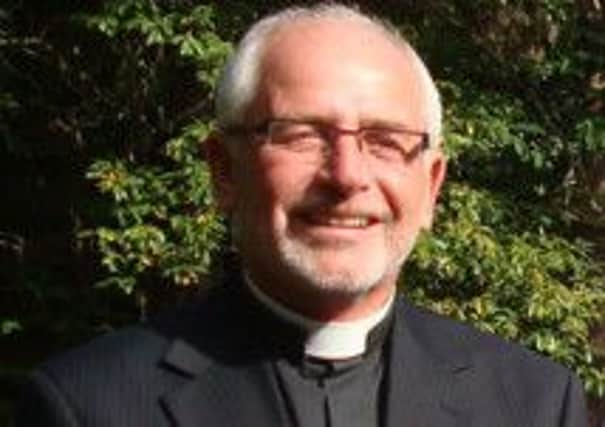Minister allays bill fears


Rev Philip Biggs, of St Cuthberts Church in Lytham, has spoken out after notices were issued by the Land Registry, informing more than 6,000 residents they could be liable for repairs to the church’s chancel, the space around the altar.
The notices have been sent to the freehold title holders of land in the town at a time the church is investigating dry rot.
Advertisement
Hide AdAdvertisement
Hide AdRev Biggs said he wished to “allay people’s fears” regarding the liability, which could see some residents face significant charges under laws dating back to the time of Henry VIII.
He said the move was to protect the church’s existing rights – not to create new legislation – and added: “Homeowners in this parish can be reassured they will not face ruin over church bills.
“Unfortunately, there have been some misleading articles in the national press.
“For many years, where the title to a property was registered, chancel repair liability was an overriding interest which meant that when the land was sold, the liability passed automatically to the new owner and became binding upon him/her.
Advertisement
Hide AdAdvertisement
Hide Ad“Legislation which was passed 10 years ago sought to make buyers aware of this by preventing the liability from passing unless a notice had been registered against the property.
“As trustees, the members of the Parochial Church Council (PCC) at St Cuthberts have a legal obligation to safeguard the assets of the church.
“That includes ensuring that the PCC retains the ability to recover the cost of future chancel repair under chancel repair liability.
“This meant that the PCC needed to take steps to protect its rights before October 13. These steps were to protect existing rights.”
Advertisement
Hide AdAdvertisement
Hide AdRev Biggs said parishioners would not be asked to pay for the repairs, which would hopefully by covered by a Heritage Lottery funding bid.
The parishioner added the “exercise of discretion has generated enormous hostility” from residents.
Matthew Scott, a solicitor at Coupe Bradbury Solicitors in Bath Street, Lytham, said notices would have been served to freeholds in the town, as opposed to leaseholds which make up around 85 per cent of properties.
He added: “What we have advised people is if you are concerned about a notice you have received, contact the Land Registry for proof of liability.
Advertisement
Hide AdAdvertisement
Hide Ad“It puts the onus on the church to make the claim, which I think will be difficult to do, especially without costing money. It would involve looking at historic boundaries and is easier said than done.
“The church was probably in a difficult position – if it did nothing, it puts in jeopardy the ability to enforce chancel liability. It had to do something before the October 13 cut-off point, but I can see why it might be unpopular with people.”
A drive by the Government to register chancel liability rights has seen more than 150 PCCs across the country make applications for chancel repair, with 10,300 notices issued across the UK by the Land Registry.
which manages the list.
A Land Registry spokesman confirmed 6,108 notices had been sent out in Fylde – but “this will not equate to the number of properties, as we send to each individual registered at a property so multiple notices may have gone to a single address.”
Advertisement
Hide AdAdvertisement
Hide AdThe spokesman added: “If you have received a Land Registry notice about chancel repairs, it will be because a parochial church council (PCC) in England, or the Representative Body of the Church in Wales, claims to have the right to collect this money to pay for the repair of the chancel of the church and has applied for the registration of a notice to that effect on your registered title.”
Rev Biggs added: “Notices have only been registered against certain freeholds and the owners of these freeholds were informed some time ago of the registration by the Land Registry. Anyone who still has concerns should consult his or her solicitor for clarification.”.